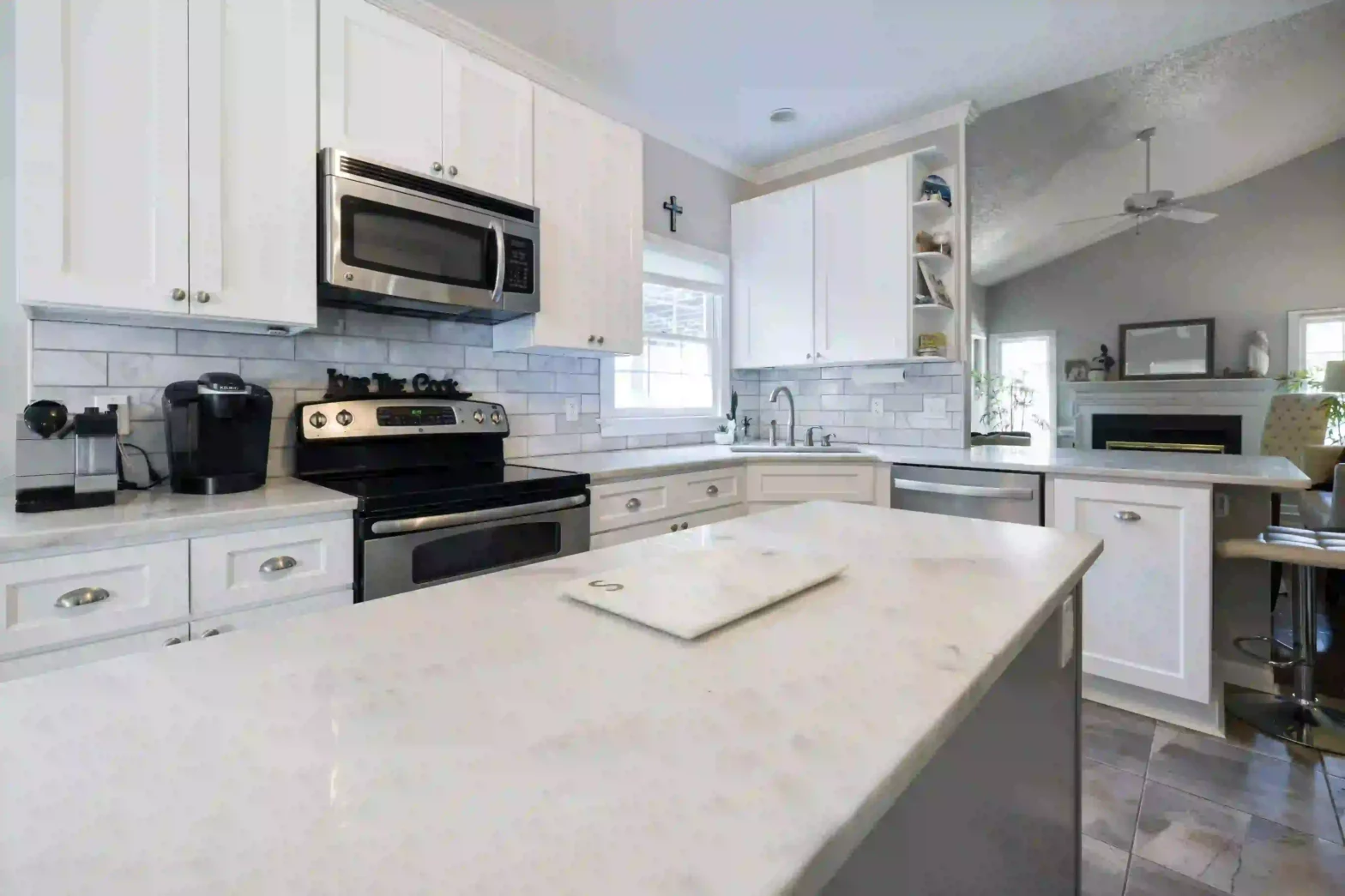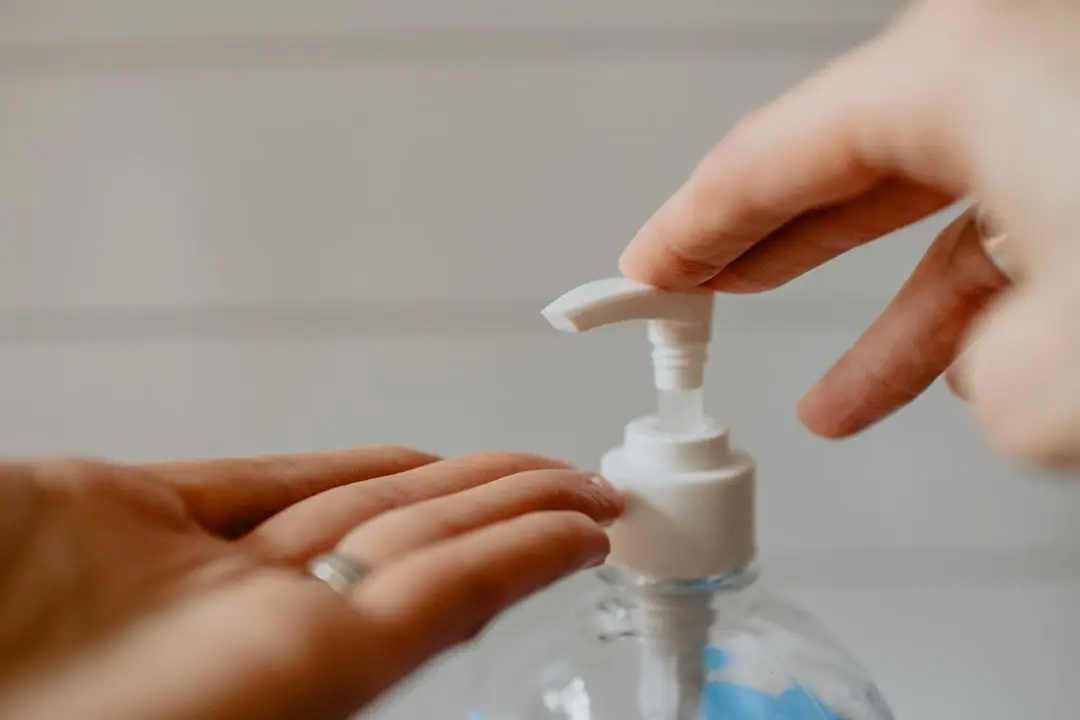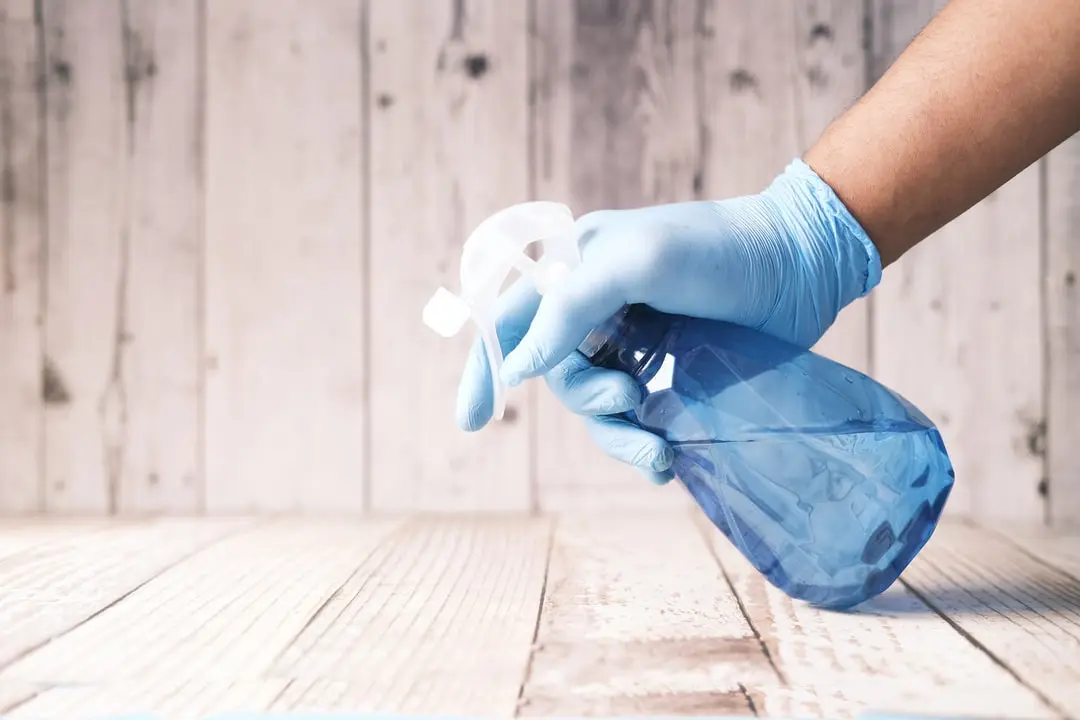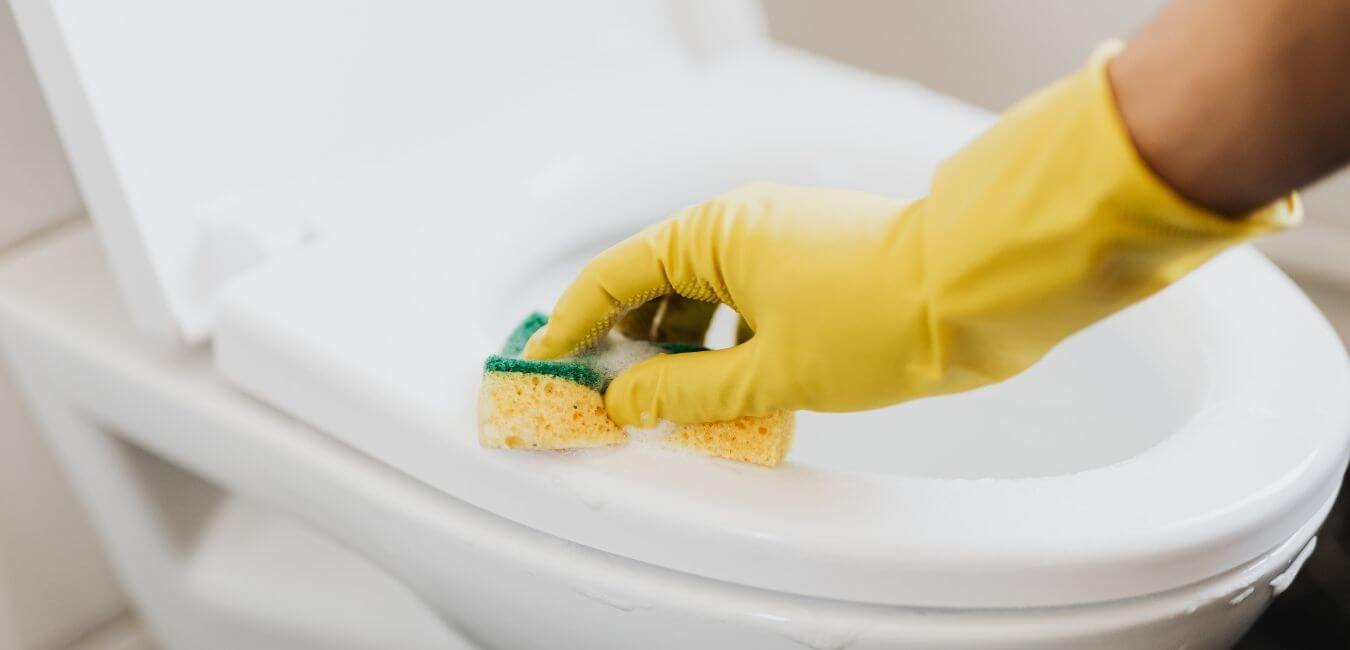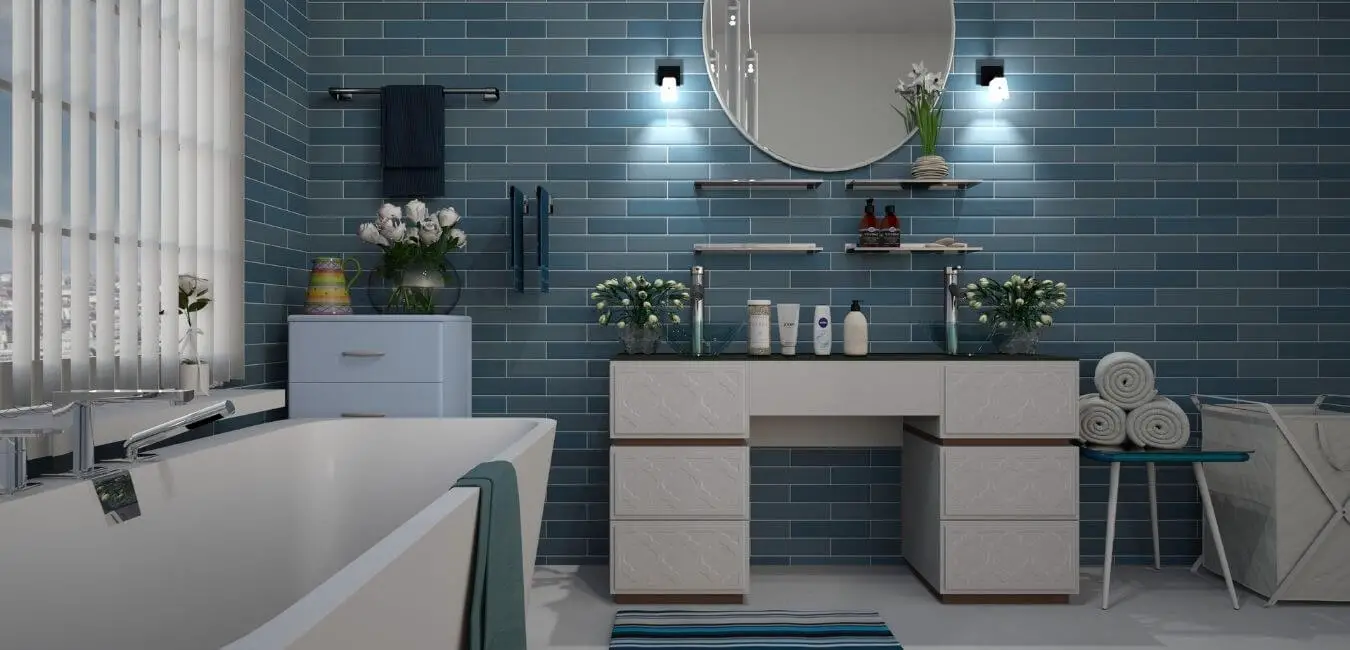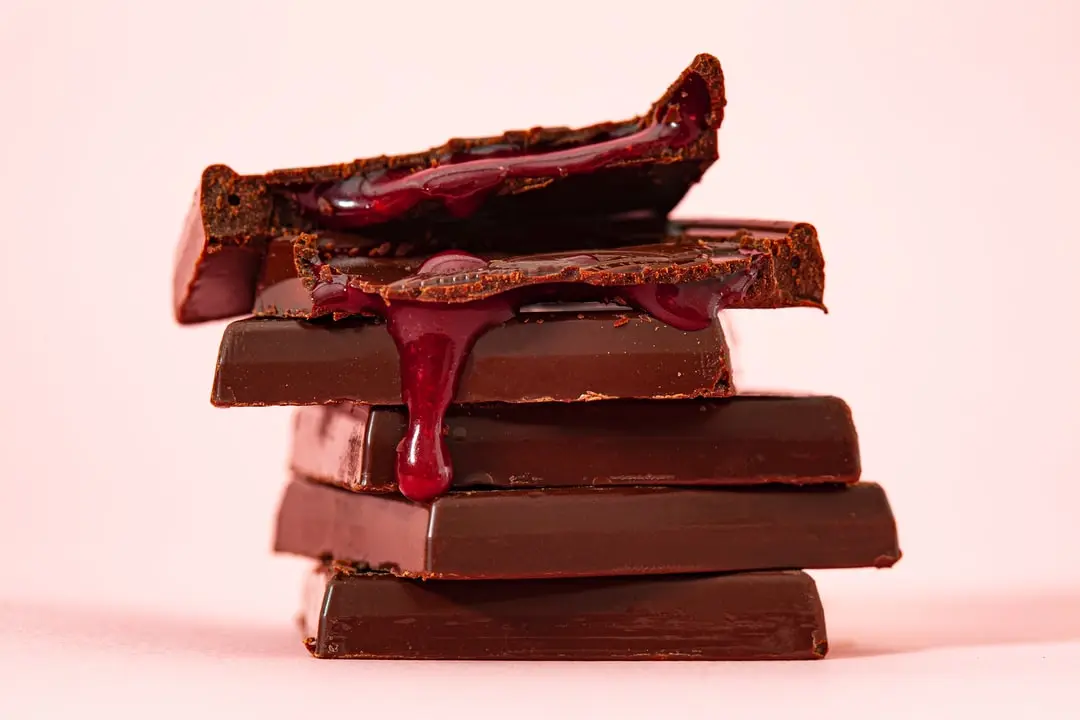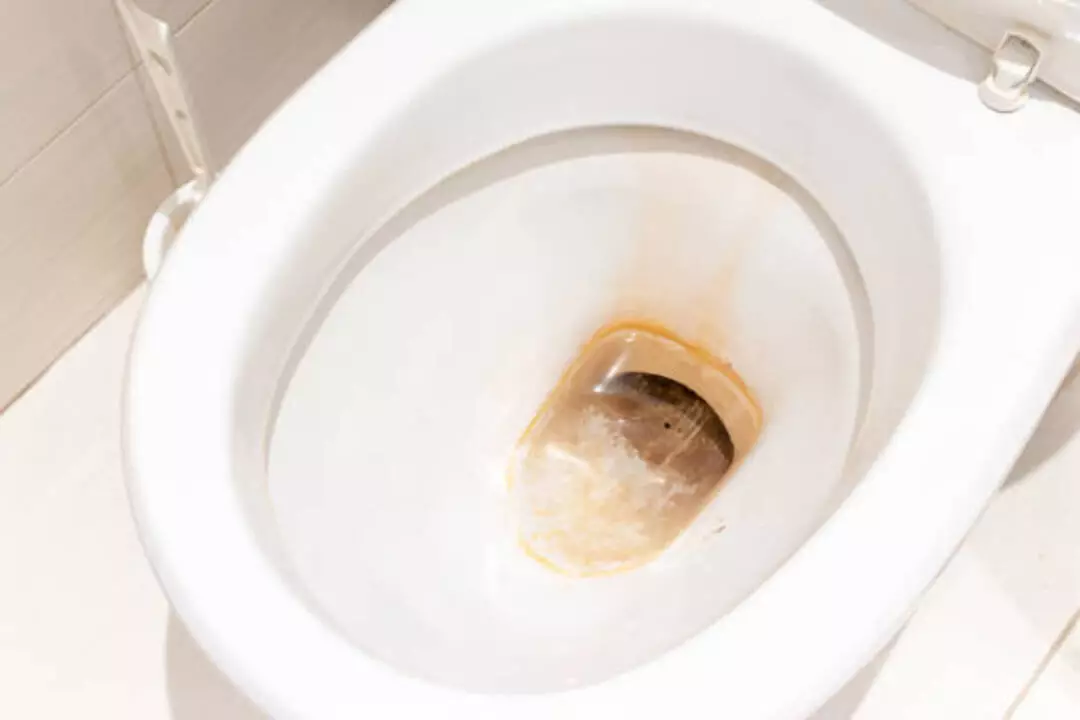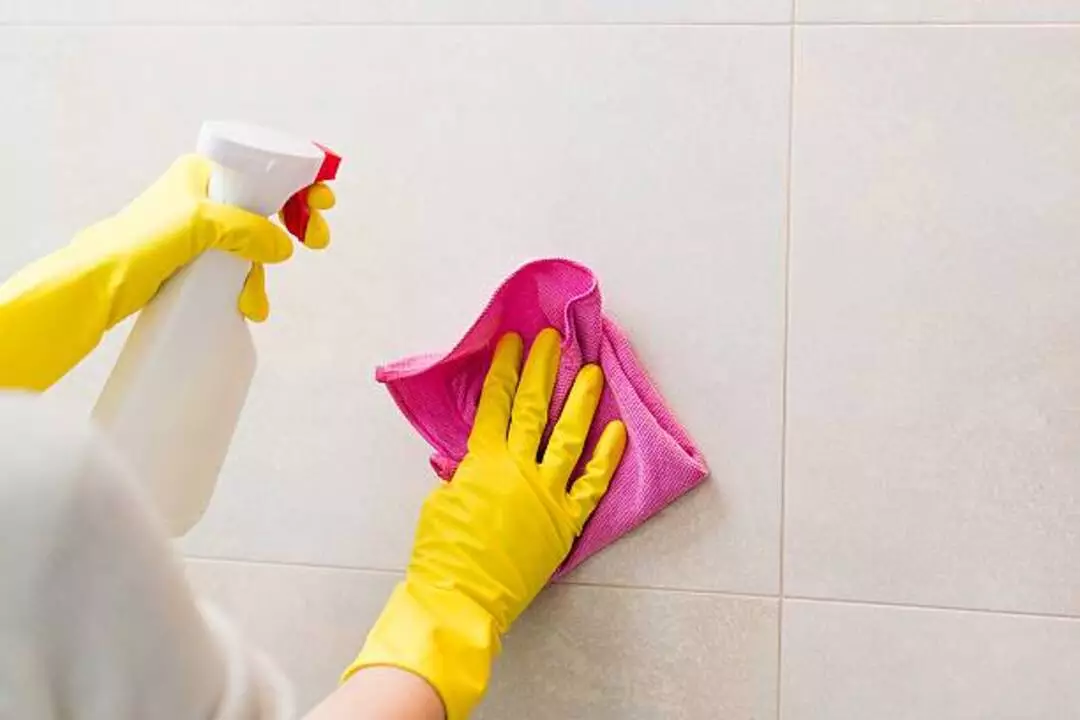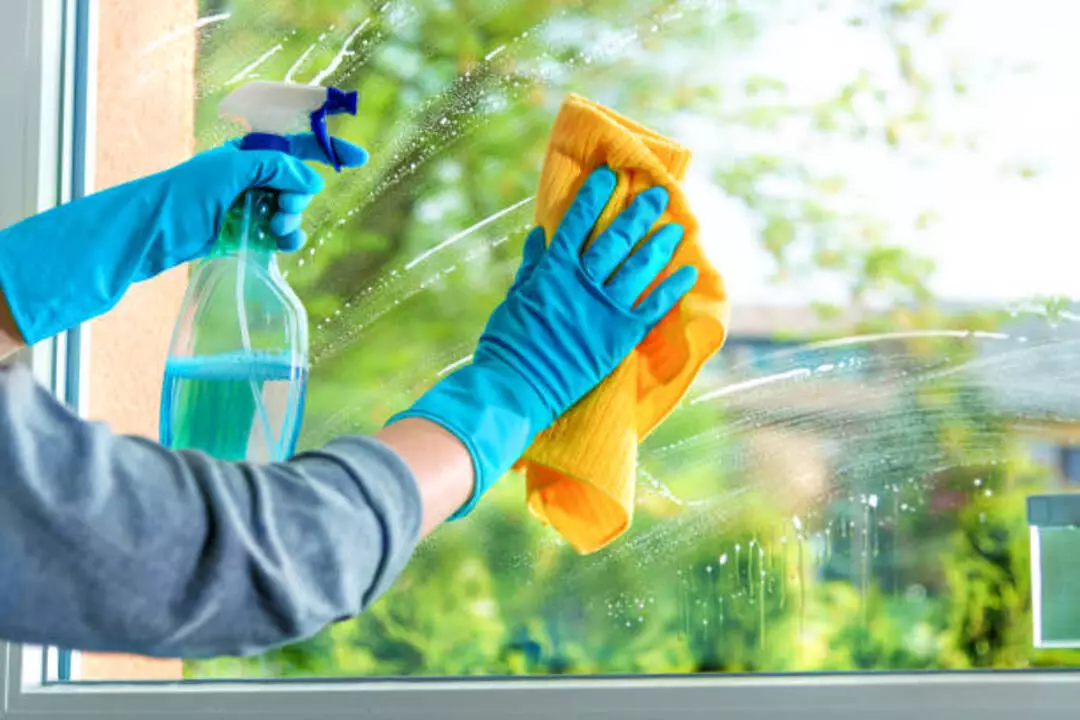Countertops are a popular feature in kitchens and bathrooms, and there are many options available to homeowners when it comes to selecting a countertop material. One option is quartz, which is made from natural materials such as quartz and resin. Quartz is a durable material that can withstand everyday wear and tear, but there is one potential downside to using quartz countertops: hard water stains.
Hard water stains are caused by minerals in the water, such as lime, magnesium, and calcium, and can be difficult to remove. They often show up on fixtures like countertops, sinks, toilets, and bathtubs, and can make them look dirty and old. These stains are easily formed on your quartz countertop when hard water reacts with soap or other household chemicals to create a brown or white residue on the countertop.
The mineral build-up from hard water can be difficult to remove and can damage your countertop if it is not handled properly.
In this article, we will discuss the effects of hard water stains on quartz countertops and will offer some tips on how to remove them.
The Effects of Hard Water Stains on Quartz Countertops
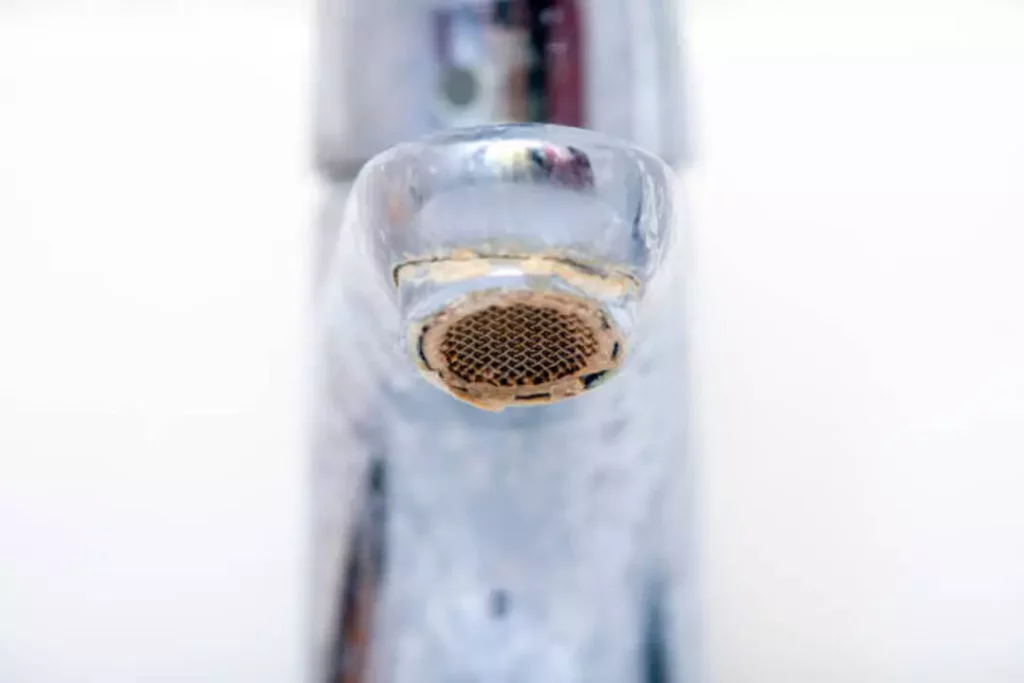
While hard water doesn’t typically pose a threat to human health, it can cause some real problems when it comes to quartz countertops. The minerals in hard water can leave unsightly stains on the surface of your countertop. If not cleaned regularly, these stains can become permanent and very difficult to remove.
In addition to leaving unsightly marks, the minerals in hard water can also cause the surface of your countertop to become dull and scratched. Over time, this will make your countertop look old and worn out.
If you have a quartz countertop and you live in an area with hard water, it is important to clean it regularly using mild detergent and warm water. Be sure to avoid using any harsh chemicals or abrasive cleaners, as these can damage the surface of your countertop.
How to Clean Hard Water Stains from Quartz Countertops?

Some people might think that cleaning hard water stains from quartz countertops is a daunting task, but with the proper products, it can be a breeze. Hard water stains can be unsightly and difficult to remove. Luckily, there are a number of commercial and homemade products that can be used to clean these stains. Some of the most popular homemade products include vinegar, lemon juice, and baking soda.
Commercial products such as Calcium Lime and Rust Remover (CLR), Lime-Away, or Mr. Clean’s Magic Eraser are designed to remove calcium build-up, lime deposits, and rust stains from a variety of surfaces, including quartz countertops.
However, it is important to test any cleaner in an inconspicuous area before using it on the entire countertop. Some cleaners may damage the surface of the quartz.
Let’s discuss how to use some of these products to remove hard water stains from your quartz countertop and whether or not the products can damage your quartz countertop.
Using Baking Soda to Clean Hard Water Stains from Quartz Countertops
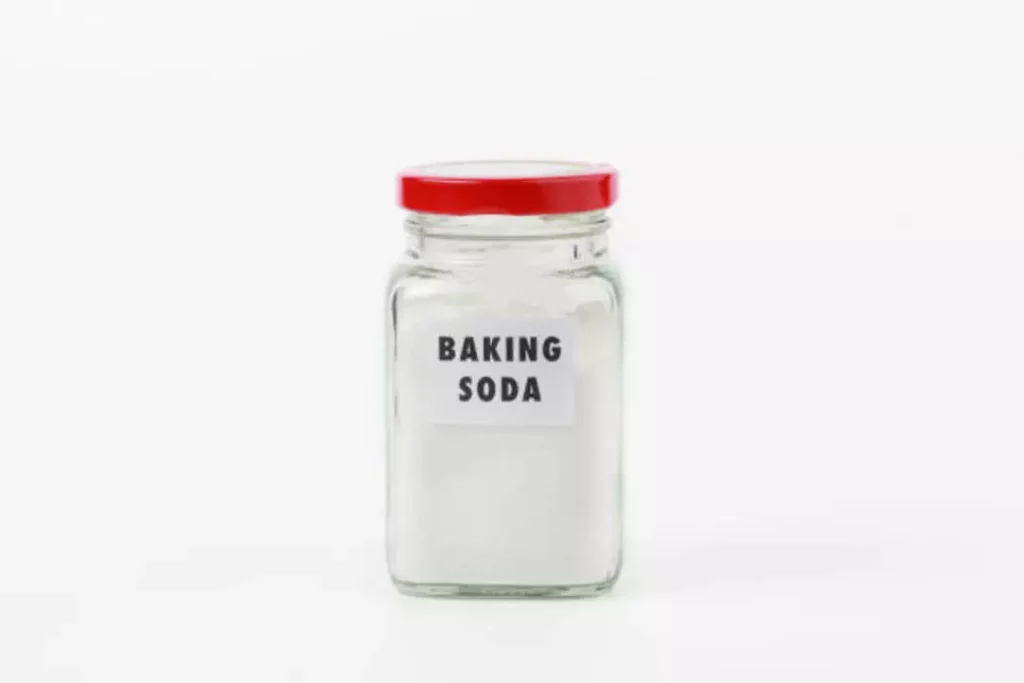
When it comes to cleaning your quartz countertops, there are a few things you should avoid. Using abrasive cleaners or scrubbing pads can scratch the surface of your countertops. Additionally, using ammonia-based cleaners can cause the quartz to discolor. A good alternative to these harsh chemicals is baking soda.
Baking soda is an alkaline substance, which is a natural and effective way to clean hard water stains from quartz countertops. It is a gentle cleaner that is non-toxic and biodegradable. Here is how to clean hard water stains from quartz countertops using baking soda:
- Mix baking soda with water to form a paste.
- Apply the paste to the stained area using a damp rag.
- Allow it to sit for about 3 to 5 minutes.
- Scrub the stained area with a soft brush, sponge, or rag until all stains are gone.
- Rinse the countertop thoroughly with warm water to remove baking soda residue.
- Wipe off excess water on the countertop to let it dry.
- Repeat the process if necessary.
Can Baking Soda Damage Quartz Countertops?
When it comes to baking soda and countertops, there are a lot of myths and misconceptions. Some people believe that using baking soda on quartz countertops can damage them. This isn’t necessarily true.
However, if baking soda is not used properly on quartz countertops, it can damage them. Baking soda is a gentle cleaner, but it can be abrasive. If you do choose to use baking soda to clean your quartz countertops, be sure to rinse them thoroughly with water afterward to remove any baking soda residue.
Following the process above on how to use baking soda to clean hard water stains on your countertop will make your countertop nice and shiny as always, with no need to worry about any damage.
Using Vinegar to Clean Hard Water Stains from Quartz Countertops
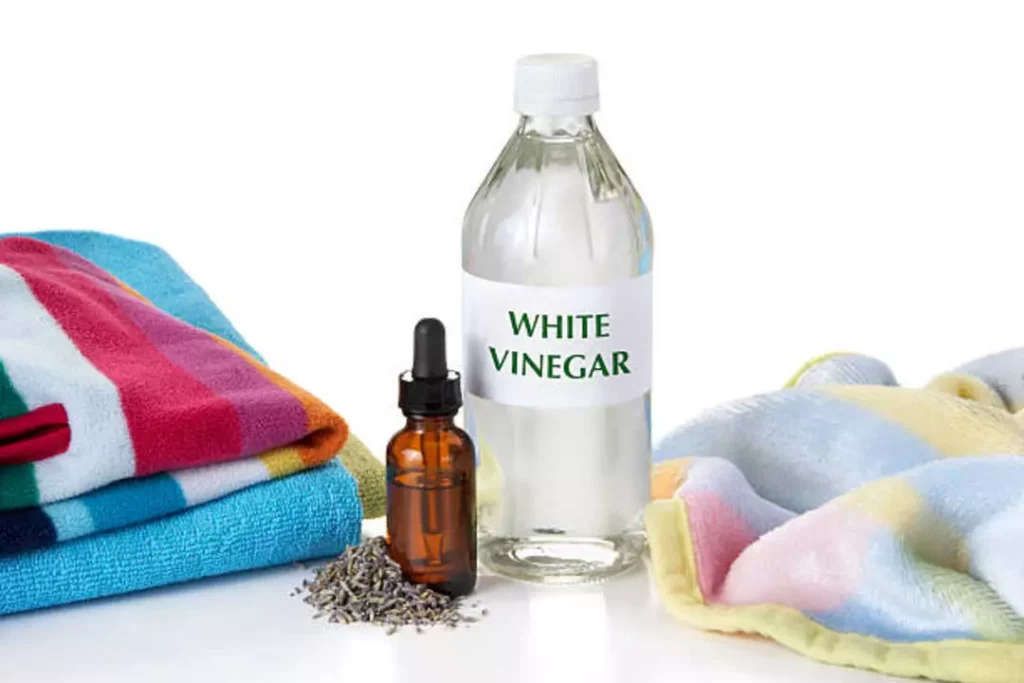
The mineral content in hard water can leave unsightly streaks on quartz countertops. While there are commercial cleaners available to address this issue, a simple solution of vinegar and water can also be effective.
Vinegar is a great cleaning agent because it’s effective at removing dirt, grime, and hard water stains. Here is how to remove hard water stains from your quartz countertop using vinegar:
- Mix 1/2 cup of vinegar with 1 cup of water.
- Sprinkle the mixture on the stained area.
- Do not allow the mixture to be on the surface for a long time.
- Rub or wipe the stains off using a rag.
- Repeat the process until no stains remain.
- Rinse the surface thoroughly with warm water to remove any vinegar residue.
- Dab any excess water on the countertop using a rag or paper towel to air dry.
Vinegar is a mild acid that is effective at breaking the mineral deposits of hard water on any surface to remove the streaks. Vinegar is non-toxic and biodegradable, meaning it’s good for the environment.
Can Vinegar Damage Quartz Countertops?
There is a lot of conflicting information on the internet when it comes to the safety of vinegar and quartz countertops. Some sources say that vinegar will damage your quartz countertops, while others say that they are perfectly safe to use.
The truth is that vinegar can damage quartz if it is not used properly. However, the extent of the damage will depend on a few factors, such as the concentration of the vinegar and how long it’s left on the countertop.
Vinegar is a powerful acid and can damage the surface of quartz if it is not diluted properly. When using vinegar on quartz countertops, always dilute it with water before applying. Never pour undiluted vinegar directly on the countertop. If you do, you run the risk of damaging the surface and causing permanent etching. It is always important to test a small area first to make sure there is no adverse reaction.
Using Lemon Juice to Clean Hard Water Stains from Quartz Countertops
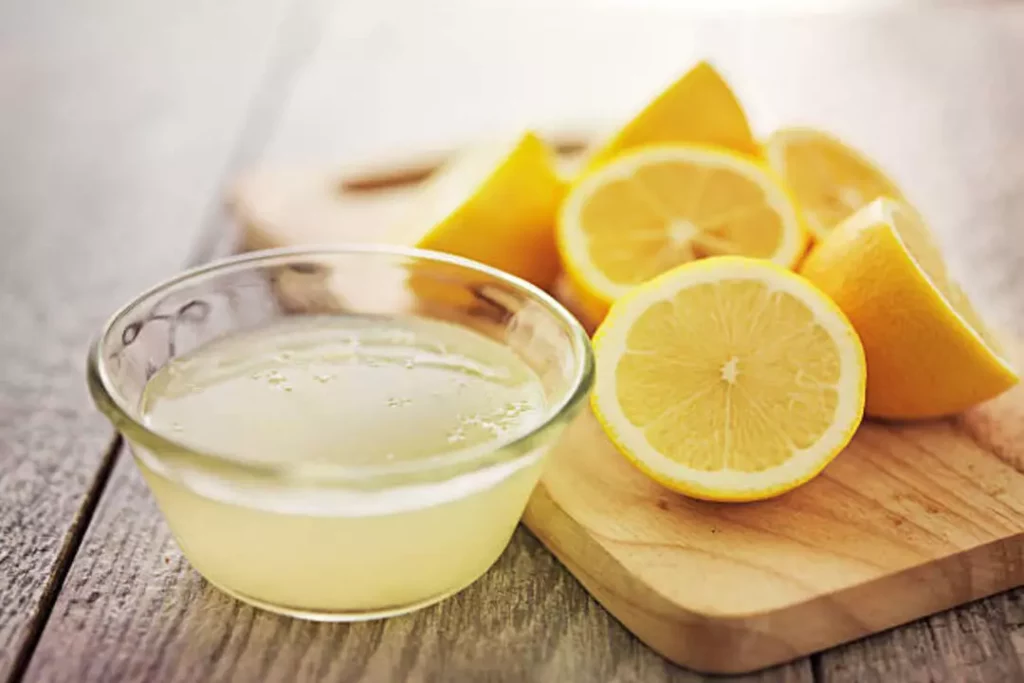
Lemon juice is a natural cleaner that can be used to remove hard water stains from quartz countertops. Here is how to properly remove hard water stains on quartz countertops using lemon juice:
- Simply mix 1/2 cup of lemon juice with 1 cup of water.
- Spray or sprinkle the mixture on the affected area of the countertop.
- Allow the mixture to sit for 1 or 2 minutes.
- Scrub the affected area with a soft brush or rag until all stains are gone.
- Repeat if necessary.
- Rinse the countertop thoroughly with warm water to remove any residue.
- Rub the countertop with a fresh clean rag or paper towel to excess water.
Can Lemon Juice Damage Quartz Countertops?
Lemon juice is acidic and can damage quartz countertops if it is not cleaned up quickly and properly. The acid can etch the surface of the countertop, leaving a dull spot in the finish. In order to protect your quartz countertop from lemon juice, you should wipe up any spills immediately.
Lemon juice can damage your countertop if it’s not used properly. Always make sure to dilute lemon juice before using it to clean your countertop. Do not use undiluted lemon juice to clean your countertop, as this may damage the surface of the countertop.
Following the above steps on how to use lemon juice on countertops, will result in a perfectly cleaned countertop and will not damage your countertop.
Using Hydrogen Peroxide to Remove Hard Water Stains from Quartz Countertops
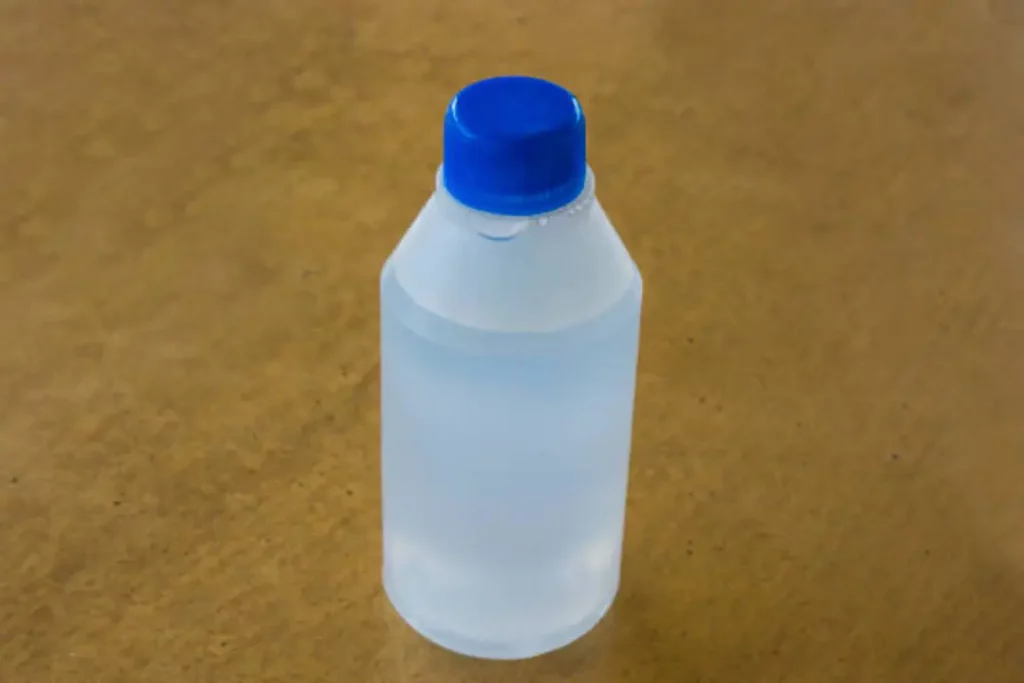
When it comes to cleaning, many people think of hydrogen peroxide as a go-to solution for getting rid of bloodstains. What you may not know is that this natural disinfectant can also be used to clean hard water stains from quartz countertops.
Hydrogen peroxide can remove hard water stains on your countertop without damaging it. Here is how to use hydrogen peroxide to clean countertops:
- Mix equal parts of hydrogen peroxide with water.
- Sprinkle or spray the solution to the affected area on the countertop.
- Allow the solution to sit for about 3 to 5 minutes to dissolve the mineral build-up.
- After soaking, wipe the area clean with a rag, sponge, or soft brush until all stains are gone.
- Repeat the steps if necessary.
- Rinse the surface with clean and warm water to get rid of any residue.
- Use a paper towel or rag to dab any excess water on the surface to air dry.
It’s important to note that hydrogen peroxide can also be used to clean other types of countertops, such as granite or marble. Simply follow the same steps as outlined above.
Can Hydrogen Peroxide Damage the Surface of a Quartz Countertop?
Hydrogen peroxide is a chemical that is often used as a disinfectant or bleach. It can be found in many household products, such as toothpaste, mouthwashes, and cleaning supplies. Some people have reported that hydrogen peroxide can damage quartz countertops. The damage may appear as white spots or streaks on the surface of the countertop.
If you’re not careful, hydrogen peroxide can etch the surface of your quartz countertop, leaving behind a dull and cloudy finish. In order to avoid this, it’s important to know how to use hydrogen peroxide safely around your countertops.
Properly diluted hydrogen peroxide will not damage your countertop. So, do not use undiluted hydrogen peroxide to clean your countertop, doing so may damage the surface over time.
Using Commercial Products to Clean Hard Water Stains from Quartz Countertops

Most commercial products are designed specifically to get rid of hard water stains on surfaces. Using these products to clean the quartz countertop will result in a perfectly cleaned surface. There are so many commercial products that can be used to clean hard water stains from quartz countertops. Here are some recommended commercial products to use and clean your countertops:
- One such product is called “Quartz Cleaner.” This product can be found online or at a local home improvement store. The Quartz Cleaner comes in a spray bottle, and it is easy to use. Simply spray the Quartz Cleaner onto the stains and let it sit for a few minutes. Then, wipe the stains away with a cloth or paper towel. Be sure to read the instructions on the product label to apply it properly.
- Another product that can be used to clean hard water stains from quartz countertops is called “Stone Care.” Stone Care can also be found online or at a local home improvement store. This product comes in an aerosol can, and it is easy to use. To clean hard water stains using Stone Care on a quartz countertop, simply spray the Stone Care onto the spot and allow it to sit for a few minutes. Then, wipe the stains away with a cloth or paper towel.
- Another product is called CLR. It is calcium, lime, and rust remover that comes in a spray bottle. It is easy to use; just spray it on the stains and let it sit for a few minutes before wiping the stains off with a damp cloth.
- Another product that can be used to clean hard water stains from quartz countertops is “Comet.” Comet is a powder cleanser that comes in a variety of forms, including spray, liquid, and gel. It can be used to remove tough stains from all types of surfaces, including quartz countertops.
- Finally, another option for cleaning hard water stains from quartz countertops is the “Mr. Clean Magic Eraser Bathroom Scrubber.” This product can be found at most grocery stores or drugstores.
However, there is a possibility that commercial products can damage quartz countertops. If a product is not meant for use on stone surfaces, it could potentially cause damage. It is important to read the label of any product before using it on your quartz countertop to avoid any potential damage.
Moreover, acidic substances can cause etching on the surface of the quartz countertop. While alkaline-based products can cause the surface of your quartz countertop to be dull. So, it is important to be aware of what products can harm your quartz countertop and take steps to avoid any damage.
Tips to Prevent Hard Water Stains from Forming on Quartz Countertops
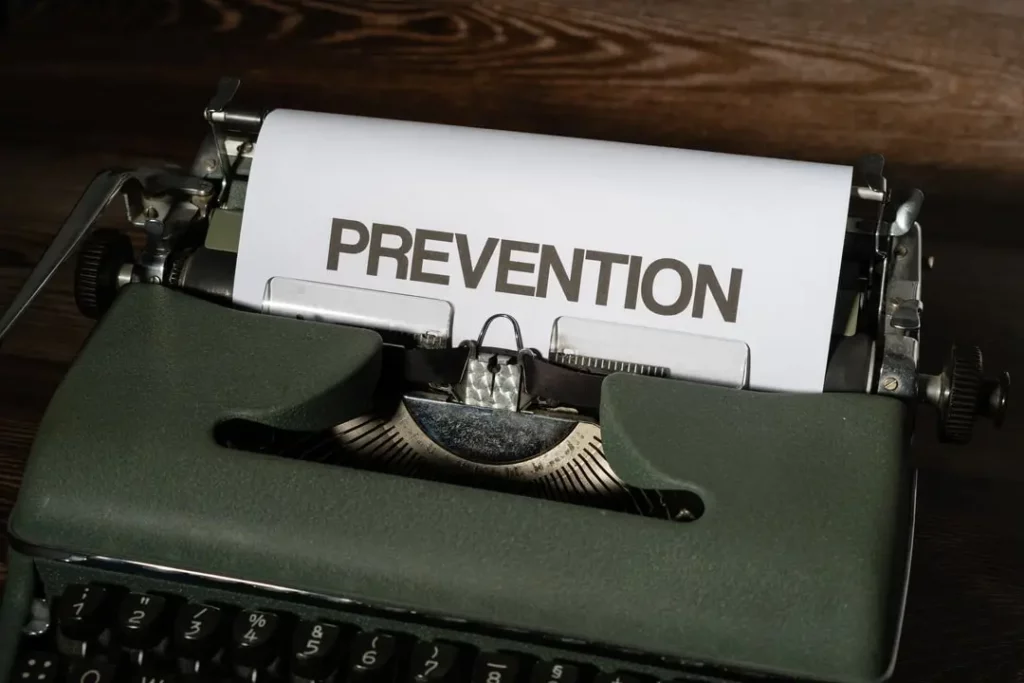
Water is a necessary part of our lives, but it can also be a major contributor to unwanted messes. When water dries up, it can leave behind hard water stains on surfaces like quartz countertops. While these spots might seem impossible to remove, there are ways to prevent them from forming in the first place. Here are some tips for keeping your quartz countertop looking its best:
- Try to wipe up any spills or messes as soon as they happen. If left untreated, liquid can seep into the small cracks and crevices of the countertop and cause discoloration over time.
- Another thing you can do is install a water softener in your home. This will help to reduce the amount of calcium and magnesium in your water, which are the two main culprits behind hard water stains.
- Use a wet cloth to clean your countertop rather than letting the water run freely over it. This will help keep the surface wet for a longer period of time and minimize the chances of spotting.
- You should also avoid using harsh chemicals or abrasive cleaners on the surface of the quartz countertop.
- The best way to prevent these stains is to clean the countertop regularly with a pH-neutral cleaner.
- Finally, consider using a quartz-safe sealant on your countertops every 6 to 12 months. This will help to seal up any small cracks and crevices that may be forming.
Interested in reading more articles to keep yourself and your surroundings clean? Click here to learn more!
Conclusion
In conclusion, hard water can have a negative impact on quartz countertops. The minerals in hard water can leave a residue on the surface of the countertop, which can make it difficult to clean and maintain. These residues can make the surface of your countertop dull and etched.
Cleaning hard water stains from quartz countertops is a fairly simple process. All that is needed is a few simple supplies and a little bit of patience. By following the steps outlined in this article, you can remove even the most stubborn stains and return your countertops to their former glory.
In order to prevent the stains from forming on your quartz counter in the first place, it is important to clean your countertop regularly with non-abrasive cleaners, use a water softener if you have hard water, or use a sealant to protect your countertop against hard water stains. Thanks For Reading!
